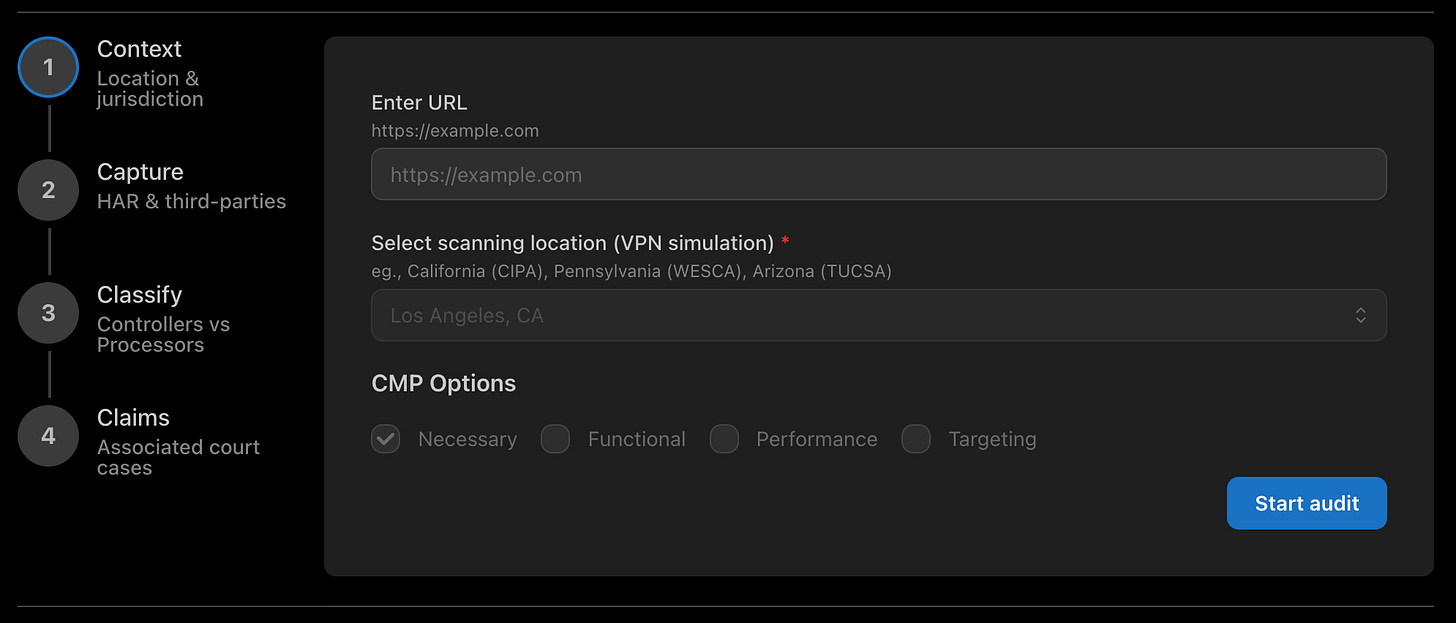BScan: Fast CIPA/VPPA website auditing and case law matching for legal professionals
An Agentic AI workflow to map embedded processors to relevant court cases and successful defenses
BScan (code name “BurritoScan” while in Alpha release - we could not find a more ridiculous name) is the first tool in our Toolbox.
What it does
Unlike most DOM-scanning tools (aimed at developers and privacy engineers), BScan is meant to assist lawyers in the auditing of websites for pixels, trackers and cookies that could result in legal exposure to private class action claims (under CIPA, VPPA, and others, mostly anti-wiretapping or video privacy protection laws).
(We are negotiating free access to technical auditor/developer-focused tools, if that is what you need instead - stay tuned to our Toolbox feed.)
BScan is 100% focused on the US market, where the nature of the embedded trackers is often much more important than their mere existence. Additionally, various state laws in the US require universal opt-out signals and such a requirement is not present in EU laws - these are mostly handled through the Global Privacy Control standard.
As a final output, BScan will identify recent court cases in the chosen jurisdiction which have involved the data processors found in the code (or very similar alternatives), as well as successful defenses against wiretapping or VPPA claims at various stages in the litigation funnel.
How it works
Most people will be familiar with the HAR file capturing/mapping process, as it is common to hundreds of website scanning tools. Once found and translated, data processors will be further classified according to common Marketing Technology, Ecommerce, or Media categories.
The BScan tool will add to this a VPN simulation (so as to ascertain what consumers would be receiving in a given jurisdiction), and a CMP agent, propagating the tracking choices preconfigured in the tool. It will also verify compliance with the Global Privacy Control universal opt-out signal.
BScan will then use the embedded technologies (whichever of those remain once both filters have been applied) to identify the risk they pose in light of a growing list of court cases involving either each specific tool or a very similar alternative (in the same category).
BScan is powered by Empathy.ai and open weight models - we do not rely on OpenAI or any other frontier model developer. At the volume we are expecting we can offer it at no cost.
Access BScan below:
Keep reading with a 7-day free trial
Subscribe to Masters of Privacy to keep reading this post and get 7 days of free access to the full post archives.


